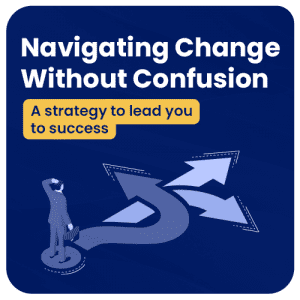
When you hear the word “wellbeing” in a work context, what usually springs to mind is how managers impact employee wellbeing. However, a topic that receives far less focus is how occupying management positions affects the wellbeing—including the emotional health—of leaders.
Emotionally healthy people are conscious of their thoughts, emotions, and behaviours. They’re also aware of their impact on others and can regulate their emotions and behaviour accordingly.
However, leadership positions require a great deal of emotional labour, which often takes a toll on leaders’ emotional health.
How emotional labour impacts leadership
Work relationships operate on a foundation of trust, and building trust requires openness and authenticity. However, leaders must regulate openness, lest their authentic emotions make them seem incapable of handling difficult situations.
Emotional labour is the effort required to manage your emotions and their impact on others. Leaders need to do this all day, every day. They must also put in significantly more effort when their responsibilities are emotionally demanding and stressful. When emotional labour is too high, emotional and mental health suffer, making leaders more prone to burnout.
60% of leaders globally show strong indications of burnout.
Unfortunately, there’s little awareness of the need to support leaders’ emotional health. Leaders are expected to take care of others, often to the detriment of their own wellbeing. So, how can organisations support their leaders?
Protecting leaders’ emotional health
There are several ways organisations can strengthen leaders’ emotional health.
Promote interactions
Leaders tend to become disconnected and inaccessible because management tasks restrict the time available for interactions. But interaction is vital to leadership—it’s how leaders establish relationships and get things done. Without positive interactions, employee engagement and leaders’ ability to influence suffer. Leaders also become isolated because they cannot share all their concerns and challenges with those who report to them. Bottling up their feelings can impact their emotional and mental health.
Leaders who spend less time interacting are 32% less engaged and twice as likely to leave the organisation within the next 12 months.
Organisations can target these challenges through initiatives like
- Leadership training
- Relaxation-focused offsites
- Talk therapy to manage stress and other challenges
- Counselling to identify safe spaces for emotional honesty
Setting boundaries
Many leaders have trouble delegating, which places an unnecessarily heavy burden on their shoulders and affects their work-life balance. Delegating ensures distributed workloads and helps leaders’ direct reports develop the skills they need to perform. When leaders establish clear boundaries and a healthy work-life balance, they set an example for the workforce and promote a positive work culture.
You can bolster the emotional wellbeing of your top management by
- Creating work-life balance policies
- Having leaders model work-life balance for the workforce
- Training leaders on delegation and time management
Training
Many leaders end up in leadership positions accidentally and are expected to rise to the occasion without any leadership training. Others receive inadequate or ineffective training that does not set them up for success in their roles.
In addition to standard leadership topics, a comprehensive, results-driven leadership programme must include training and ongoing counselling on
- Emotional health
- Emotional intelligence
- Self-care and self-awareness
By supporting leaders in these little-known but nonetheless important aspects of leadership, organisations can empower leaders to
- Tackle job-related stresses
- Build robust working relationships
- Recognise and manage their emotions
Solutions for organisations
When leaders are armed with the right resources and skills, results are apparent not just in how they manage their responsibilities or their people. With emotionally healthy leaders, you see tangible effects in your workforce and culture: trust-based relationships, enhanced collaboration, increased ownership, and a healthy work-life balance.
Most leadership programmes fail to focus on these aspects of the leadership experience that so strongly influence individual success and organisational outcomes.
MARG’s Wellness Programme offers tailored initiatives to help promote wellbeing—and, by extension, effectiveness—in top management. With wellness-focused consulting, counselling, education and training, and assistance in setting up wellness-centred employee policies and benefits, we have solutions for every organisation’s wellness needs.
Interested in knowing more? Contact MARG’s Wellness Advisors for more information on how we can help you promote the wellbeing of your leaders and workforce.






